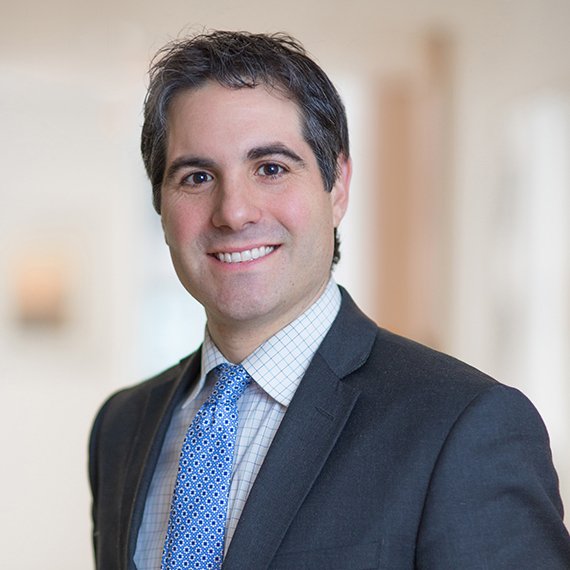
Five Questions for Carl Robichaud, Program Officer, International Peace and Security.
Nuclear risks have risen even as awareness of them has fallen, says Robichaud. The nuclear security sector needs an influx of innovators, experts, and entrepreneurs to reinvigorate an international conversation on this critical issue.
You’re part of a group that’s launching an exciting new peace and security project. Can you explain?
It’s a collaborative called N Square: the Crossroads for Nuclear Security Innovation, and it’s a hybrid advanced-concept lab and venture fund that emerged from a group of funders in the nuclear space. Our goal is to take a relatively small pool of money and time to incubate new ideas and approaches outside of mainstream grantmaking in nuclear nonproliferation.
We’re launching the initiative with a series of virtual roundtable conversations in partnership with the Reinventors Network. They will bring innovators from different sectors together in interactive group videos streamed to live audiences and then edited for social media. The process is designed to generate promising ideas by working through six areas that provide fertile ground for breakthroughs.
Who belongs to the collaborative?
Five of the largest peace and security funders in the U.S.: the William and Flora Hewlett Foundation, the John D. and Catherine T. MacArthur Foundation, Skoll Global Threats Fund, Ploughshares Fund, and Carnegie Corporation of New York.
Is nuclear war still a real concern almost 70 years after Hiroshima?
Yes. The same weapons and technology still exist, and are easier to acquire. Over the past two decades, the risks have increased while awareness of them has decreased. Today, nuclear issues are not seen as a relevant security threat the way they were in the past. Millennials in particular never experienced the Cold War. Consequently we have a harder time engaging policymakers and civil society leaders about these dangers.
But aren’t we safer since the end of the Cold War?
It’s hard to quantify these risks, but it’s clear that they haven’t gone away. During the Cold War, Mutual Assured Destruction kept states with nuclear weapons arsenals from using them, but there were still incentives for brinksmanship. The rise of global terrorism and the spread of dual-use nuclear technologies have added new dimensions to the threat. Meanwhile, existing nuclear arsenals and command and control systems are aging and could increase the chances of accidents or malfunctions. And new technologies, from precision-guided conventional weapons to cyberwarfare, may make nuclear escalation more likely.
What’s N Square’s game plan, and the ultimate goal?
First, we’re looking to create some high-impact collisions between people from the nuclear space and those from other areas of expertise—people who understand crowdsourcing or big data, for example. The goal is to better understand whether new approaches and emerging technologies can strengthen our thinking about nuclear issues and build some momentum toward addressing these risks.
We’re starting by building a problem map as a way of demystifying the challenge so that nonexperts can grasp the issues and perceive how they can make a difference. At the same time we’re looking for new tools. Can remote-sensing and advances in commercial satellite imagery improve verification? Can virtual reality tools help train inspectors who might have only one pass at a nuclear facility? Can machine learning and network analysis reveal proliferation patterns?
N Square approaches these issues with a startup mentality. We’re not locked into silos that prevent pursuing a new idea because of narrow criteria, and we’re not afraid of failure. We aspire to reduce the likelihood of nuclear terrorism and prevent the spread of nuclear weapons to new states. We want to prevent nuclear war between existing nuclear states where disruptive technologies could make conflict less predictable and more likely. Our aspiration is to reduce short-term nuclear risks and create conditions that could one day lead to a world free of nuclear weapons.
- Press Releases


